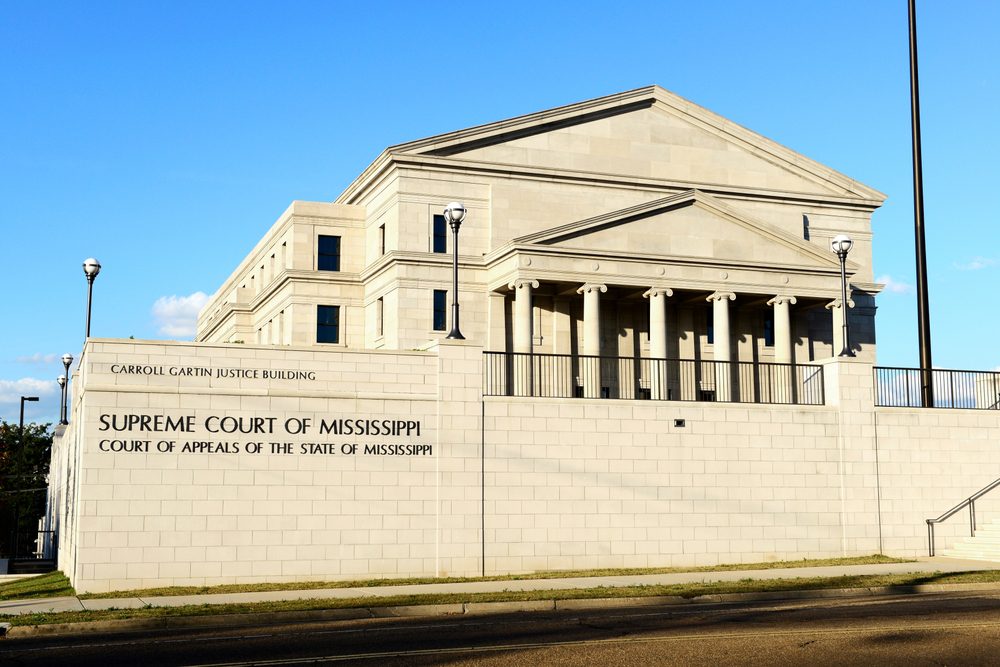2013 “Education Session” Creates Transformational Change for Students
Passage of Strong Jobs Measures, Conservative Budget Will Also Strengthen the State
JACKSON—Last year, Gov. Phil Bryant challenged the Legislature to join him in focusing the 2013 session on reforming public education in Mississippi. Gov. Bryant released his “Education Works” agenda in November 2012, and the bold reforms he put forth will now become law.
“There is no doubt that Mississippi’s future depends upon the quality of education in our classrooms. I thank the Legislature for working with me to raise the bar for public education and create transformational change for our children.”
Gov. Bryant’s “Education Works” reform measures were adopted by the Legislature in four bills.
House Bill 369 expands opportunities for the creation of public charter schools in low-performing D and F districts and is a solid step toward increasing school choice for Mississippi families. Districts rated A, B or C can choose to prohibit charter schools.
“Children should not be trapped in schools that are not meeting their needs,” Gov. Bryant said. “I believe Mississippi students can achieve the success I have seen first-hand in charter schools in other states, and I think families deserve this freedom.”
Gov. Bryant’s “Third Grade Gate” literacy measure, Senate Bill 2347, will improve literacy achievement by ending social promotion of third grade students who are not reading on grade level. The measure allocates resources to schools to screen students’ literacy skills and provide those who are struggling with additional reading help. K-3 teachers and administrators will participate in training on best practices for reading instruction.
Improving teacher quality is also a central focus of Gov. Bryant’s reform agenda. Senate Bill 2188 increases standards for entry into teacher education programs at Mississippi universities. Students must have a 2.75 GPA on pre-major coursework and either score a 21 on the ACT or pass the Praxis Core Academic Skills for Educators assessment.
Additional “Education Works” reforms are included in Senate Bill 2658:
• Directing $1.5 million to fund 200 scholarships for high-achieving high school and college students who commit to teaching in a Mississippi public school for five years.
• Directing $1.5 to launch a four-district pilot program that rewards highly effective teachers with higher pay.
• Requiring districts with graduation rates of less than 80 percent to submit a restructuring plan to the Mississippi Department of Education.
• Directing $6 million to Teach for America.
• Directing $3 million to continue early childhood education efforts conducted by Mississippi Building Blocks
• Directing $1.8 million for LifeTracks, a data system that provides statistics on student achievement.
• Directing $300,000 to training for Dyslexia professionals.
• Directing $22.6 million to the National Board Certified Teacher program.
• Directing $250,000 to help high school students obtain work certifications.
• Directing $1 million to dropout prevention and intervention efforts conducted by Jobs for Mississippi Graduates.
Senate Bills 2188, 2347 and 2658 are endorsed by the Mississippi Department of Education and the Mississippi Association of School Superintendents.
Economic development
In addition to pursuing bold education reform, Gov. Bryant continued his commitment to strengthening Mississippi’s economy. The Legislature heeded the guidance of Gov. Bryant’s fiscal year 2014 Executive Budget Recommendation and eliminated a tax burden that requires some small businesses in the state to pre-pay taxes at the close of each fiscal year. The move will allow small businesses to better manage their cash flows and is supported by The National Federation of Independent Businesses.
Gov. Bryant has also signed two job training measures into law. House Bill 117 allows certain businesses to receive workforce training funds in lieu of tax incentives, and House Bill 932 directs an additional $8 million in workforce training funds to community and junior colleges.
Health care
Gov. Bryant also won legislative support and funding ($31 million) for an expansion of the University of Mississippi Medical Center’s School of Medicine. The new facility will further Gov. Bryant’s push for 1,000 new physicians by 2025 by allowing UMMC to expand the size of each incoming class from 135 to more than 160. The additional physicians trained are expected to support 19,000 new jobs by the same year.
“More physicians will support more jobs and will provide better access to health care for Mississippians,” Gov. Bryant said.
The Legislature additionally increased its support for Mississippi’s successful Rural Physician Scholarship Program by removing the arbitrary cap on scholarships and instead tying the number of awards to available funding (Senate Bill 2302). A similar scholarship program was established for rural dentists (House Bill 776).
Energy
Several measures drawn from Gov. Bryant’s “Energy Works” agenda are also set to become law:
• The Energy Sustainability and Development Act (Senate Bill 2564) strengthens energy efficiency requirements for state government and helps the Mississippi Development Authority collect, organize and market energy-related information that is relevant to attracting economic investment to the state.
• Senate Bill 2564 amends the existing Energy Infrastructure Revolving Loan Fund to aid small communities in making energy infrastructure improvements that are necessary to compete for economic development projects.
• House Bill 1698 aims to boost energy production by reducing the tax on oil and gas extracted through horizontal drilling to 1.3 percent.
Budget
Lawmakers adopted at $5.75 billion General Fund budget and heeded Gov. Bryant’s call to set aside two percent of state revenues ($102.6 million) to guard against unanticipated needs in the coming fiscal year. The legislative budget also reflects Gov. Bryant’s call to reduce spending one-time money on recurring expenses and saved $247 million to apply toward the budget for fiscal year 2015.
“Overall, this is an acceptable budget, and I will be reviewing it further in the coming days. We continue to face a struggling national economy, and I appreciate the Legislature for heeding my calls for prudence.”
Governor Phil Bryant Release
4/4/13







